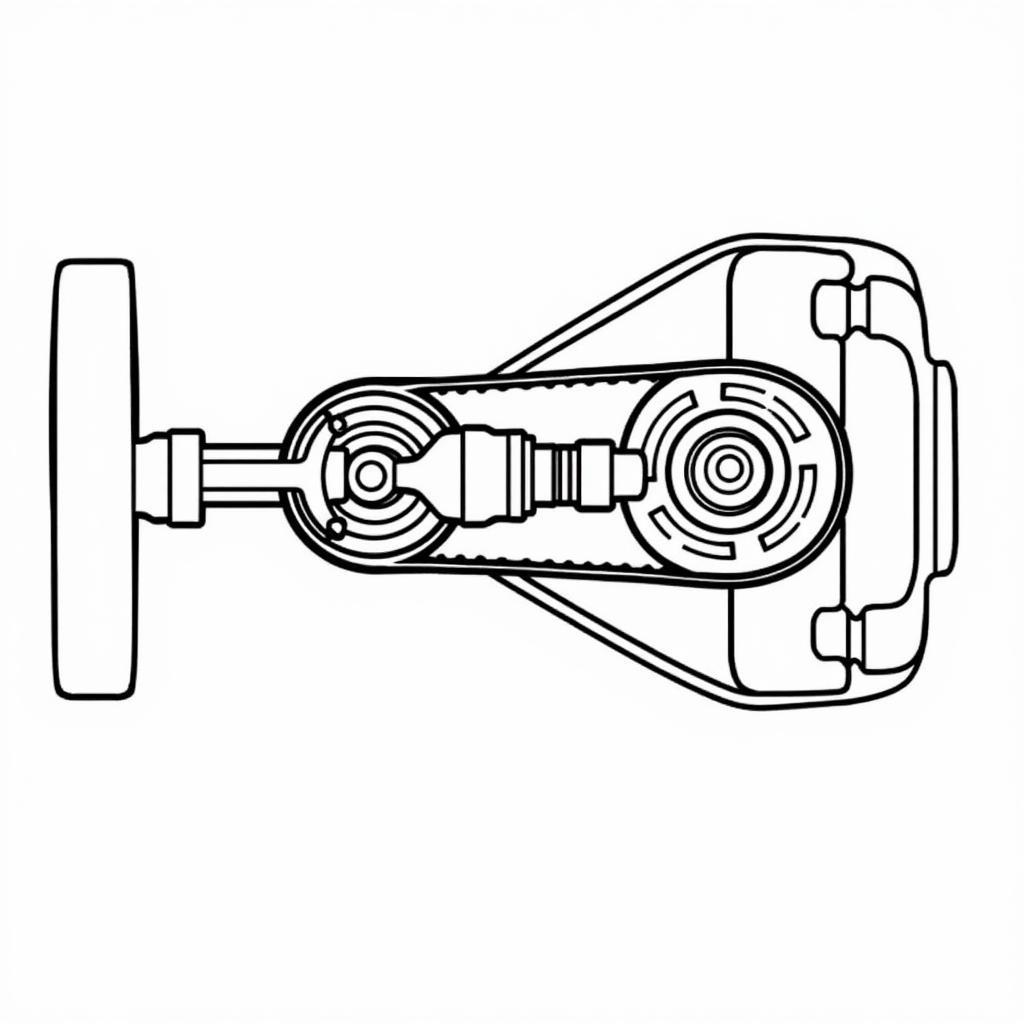Understanding what your car is trying to tell you through its diagnostic system can feel like deciphering a foreign language. One message that often leaves car owners scratching their heads is “over advanced driving”. This phrase, though it might sound complex, usually points to a specific issue within your car’s timing system. Let’s break down what this message means, why it appears, and what you should do when you encounter it.
Deciphering “Over Advanced Driving”
In simple terms, “over advanced driving” refers to a situation where your car’s engine timing is too far advanced. The timing of your engine is crucial for optimal performance. It dictates when the spark plugs ignite the fuel-air mixture in the cylinders. If the timing is off, even slightly, it can lead to a range of problems.
 Car Engine Timing Diagram
Car Engine Timing Diagram
When your car’s timing is “over advanced,” it means the spark plugs are firing too early in the combustion cycle. This early ignition can lead to a knocking or pinging sound from your engine, reduced fuel efficiency, and even engine damage in severe cases.
Why Is My Car’s Timing Over Advanced?
Several factors can contribute to over advanced driving:
- Faulty Sensors: Modern cars rely on a network of sensors to determine the optimal engine timing. A malfunctioning crankshaft position sensor, camshaft position sensor, or knock sensor can send incorrect data to the car’s computer, leading to inaccurate timing adjustments.
- Vacuum Leaks: Your engine relies on precise vacuum pressure for various functions, including timing. A leak in the vacuum hoses or intake manifold can disrupt this pressure and impact timing.
- Mechanical Issues: While less common, worn-out timing belt or chain, a damaged distributor (in older cars), or problems with the variable valve timing system can also cause over advanced driving.
What to Do When You See “Over Advanced Driving”
If you see “over advanced driving” on your car’s diagnostic system or notice symptoms like engine knocking, reduced fuel efficiency, or difficulty starting, it’s crucial to take action:
- Check for Other Codes: Often, “over advanced driving” appears alongside other diagnostic trouble codes (DTCs). Checking for these additional codes can provide a more comprehensive understanding of the underlying issue. Learn how to check car diagnostics with our comprehensive guide.
- Consult a Mechanic: Diagnosing and fixing engine timing issues typically require specialized tools and expertise. It’s best to consult a qualified mechanic to pinpoint the root cause of the problem.
Preventing Over Advanced Driving
While some causes of over advanced driving require professional attention, you can take some preventive measures:
- Regular Maintenance: Following your car’s recommended maintenance schedule, including timely replacement of the timing belt or chain, can prevent many timing-related problems.
- Address Vacuum Leaks: Regularly inspect your car’s vacuum hoses for cracks, loose clamps, or signs of wear.
- Use Quality Fuel: Using the recommended octane rating fuel for your car can help prevent engine knocking and potential timing issues.
Conclusion
“Over advanced driving” might sound intimidating, but understanding its meaning and causes empowers you to address the issue effectively. Remember, early detection and prompt action are key to preventing further damage and costly repairs. If you suspect your car’s timing is off, don’t hesitate to seek professional help. To learn more about car diagnostics and common issues, check out our guide on how to diagnose a car.

Leave a Reply